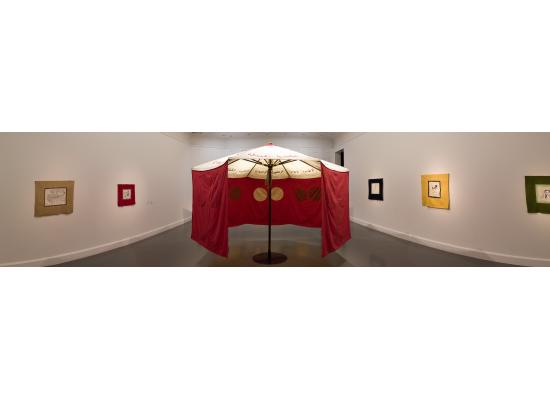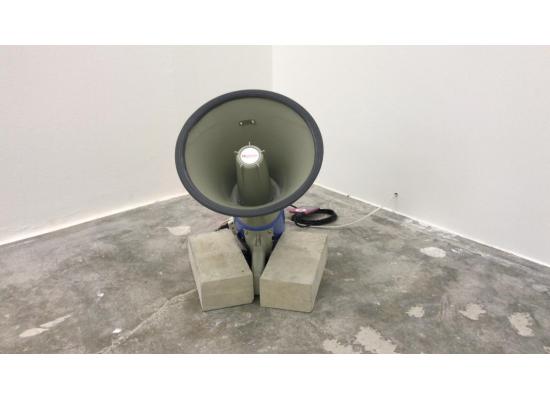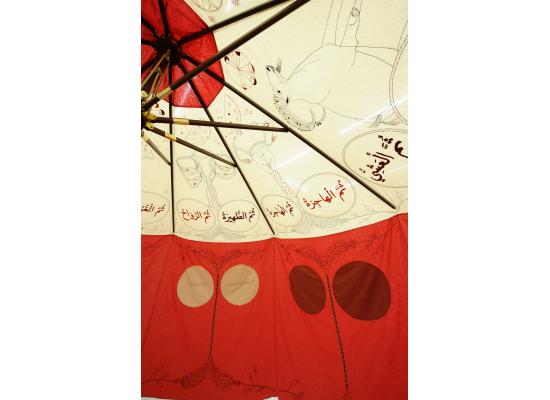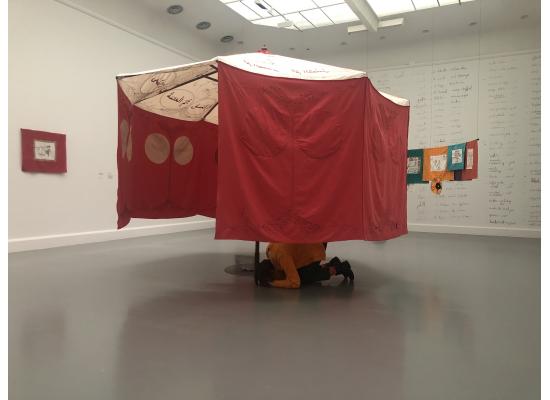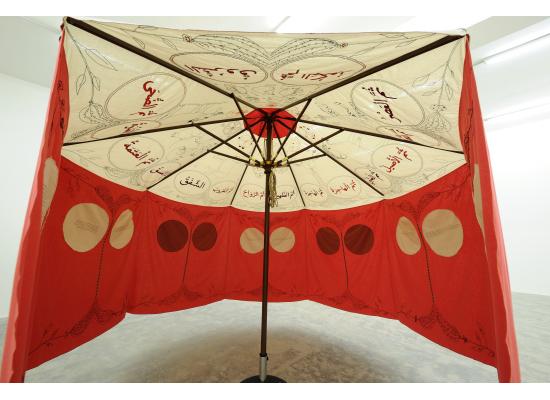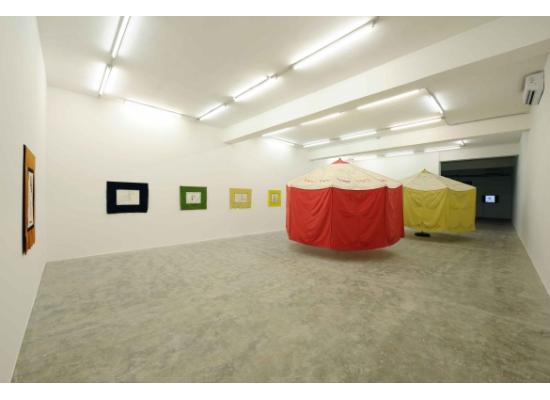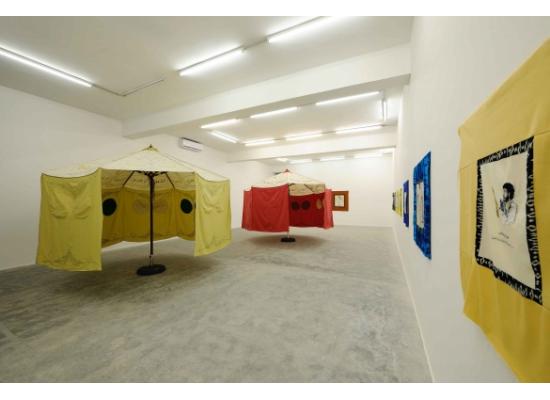3 embroidered tents - first 2 tents exhibited in May 2019 in Beirut- ongoing work
3.5 diameter x 220 height each tent
sound via megaphone with recorded voice of Lebanese singer Rima Khcheiche, reading the names of the hours in Arabic.
As I turned 40, and after I moved in Beirut to a certain area, I witnessed more and more how inequality and social pressure dominates women, men and children's lives. This work is also a recording of my own body clock, as I witness time and over again women faced with oppressive systems. Hence, the hours of the day in Arabic - (to each hour in Arabic, there is a name), are also embroidered carefully on the upper tent sides.
At 40, I became more aware, whilst earlier I didn't want to accept these facts. Thus, I made these tents loosely after a tent that belonged to Mohammad Shah in Iran, that was a ceremonial tent initially. But to me, my tents funciton as breathing libraries, whereby you can enter to read a selection of women's stories, defying a system of inequality and war conditions, whilst keeping some humor and strong position. Among those stories that I collected, are some belonging to my mother for instance, and others told and lived by friends and neighbours.
I sometimes wrote a story, after I witnessed what has happened. With one of the women, we were able to write the story together, and with two of the women, they wrote their own story after I asked them to do so, because I think their story deserves to be preserved, such as in the case of Rana, and since she's also a writer.
However I wrote all the stories in the first pronoun, to personify them, and I kept them very short, so that the spectator can read them, and enjoy what is embroidered on the upper parts of the tent.
The embroidered elements are decorative interlace that I made up after my own body parts, and others are from my drawings of aninmals that belong to certain areas in Lebanon and are endangeroured, and I wanted to have them on the tent, because they were also mentionned in one of the stories. On one tent we have animals that run usually in the mountains, and on the other tent we have sea animals found in the mediterranean on the Lebanese shores.
Women in those stories, dare to transform from victims to active members provoking change in their environement, no matter how small, because they did not just accept how things are "supposed to be".
Until today, we carry the heavy weight of a patriarchal approach in all details of our quotidians in Lebanon, in Syria and in the Arab world, also in the West in my opinion. Change comes from recording stories defying that system. At least for me, this is how I can proceed for now.
NB:
This work is made with a team of embroiderers, professional tailors and assistants working with me in the studio:
Sitt Souad el Bitar who has been filling most of the works on the topsides of the tent with myself.
Sitt Noura Matar, Zeina Chakkour, Louise Boutan have been assisting me filling out with embroidery the sides of the tents.
Sitt Houda Wahhab has lead all the practical tailoring work.
Salam Shokor, Jihad Shokor, David Badawi, Balsam Bouzzour, Louise Boutan, Sabine Chaaban, Lea
Chikhani, Abu Sakhra: technical production.
Maysam el Hindi and Joumana Seikaly translations and copy editing of my texts.
Research for the hours of the days in Arabic are resulting from fruitful dialogues based on earlier performative
readings and discussions with Jacques Aswad.
Sound recording and editing with the technical assitance and supervision of Jana Saleh.
Thanks to Chaza Charafeddine, Rana Issa, Hanan Bdeir El Solh, Fadi el Tofeili.
Produced by Sfeir-Semler gallery Beirut & Hamburg for my solo exhibition in Beirut "The Mother Of David and Goliath" 2019
